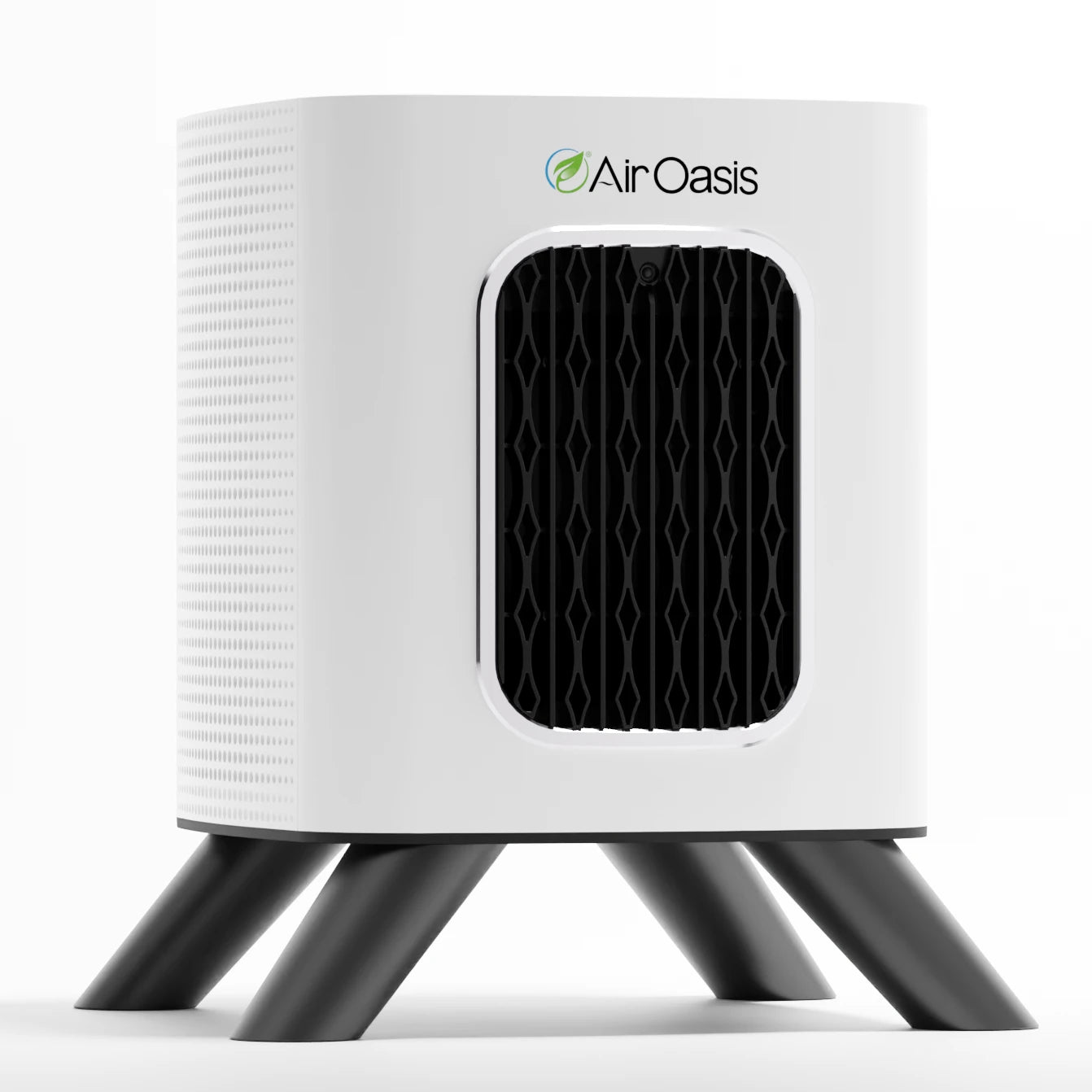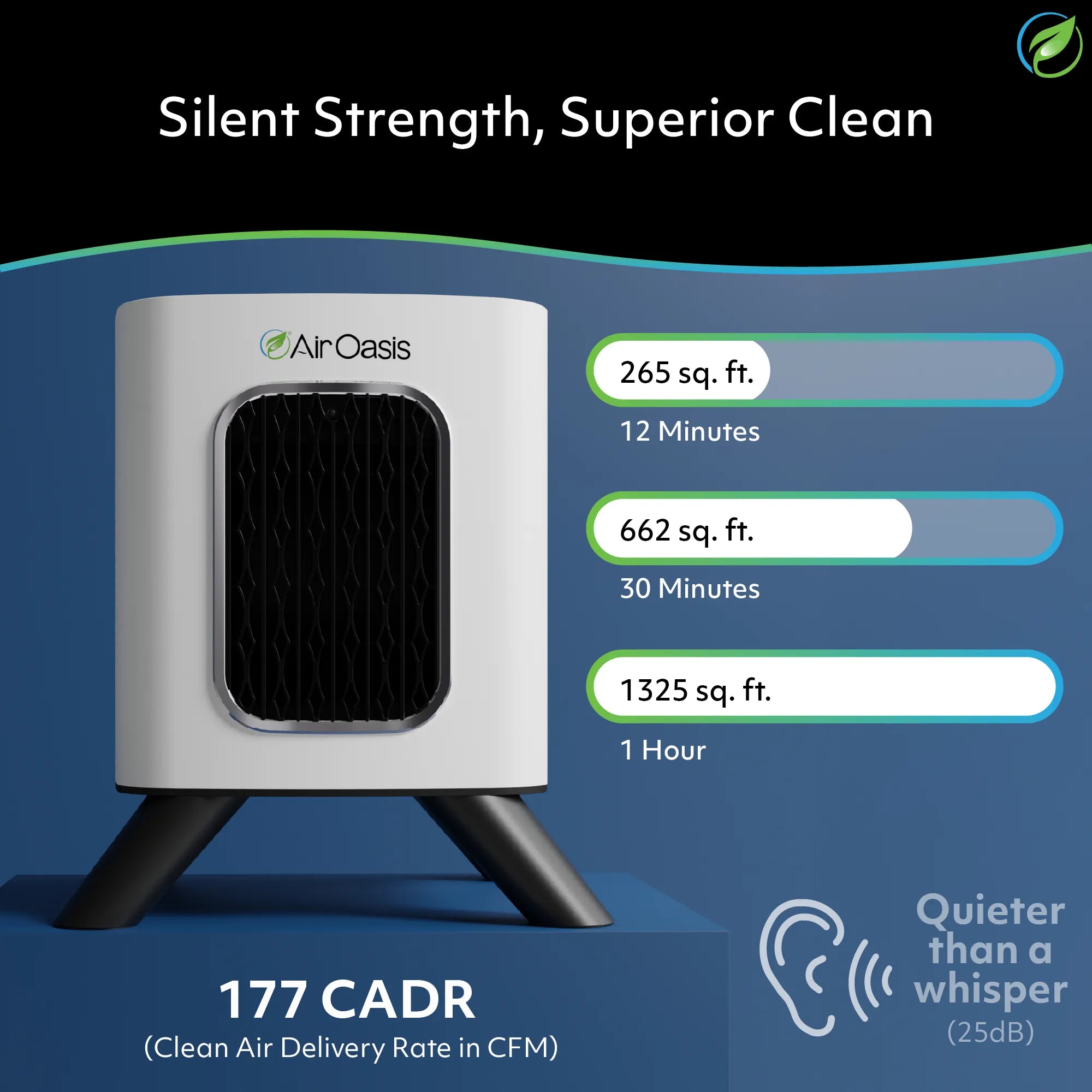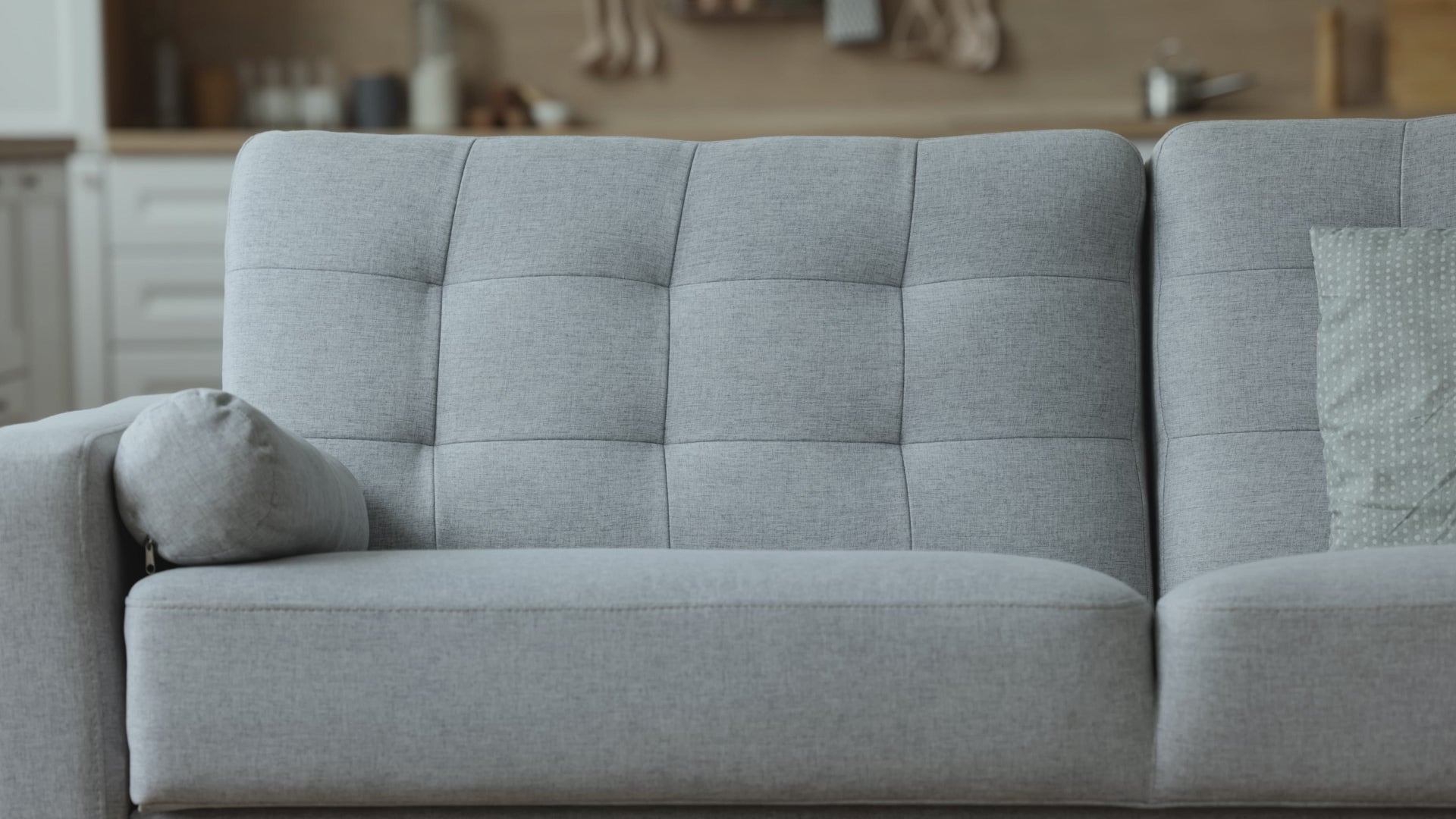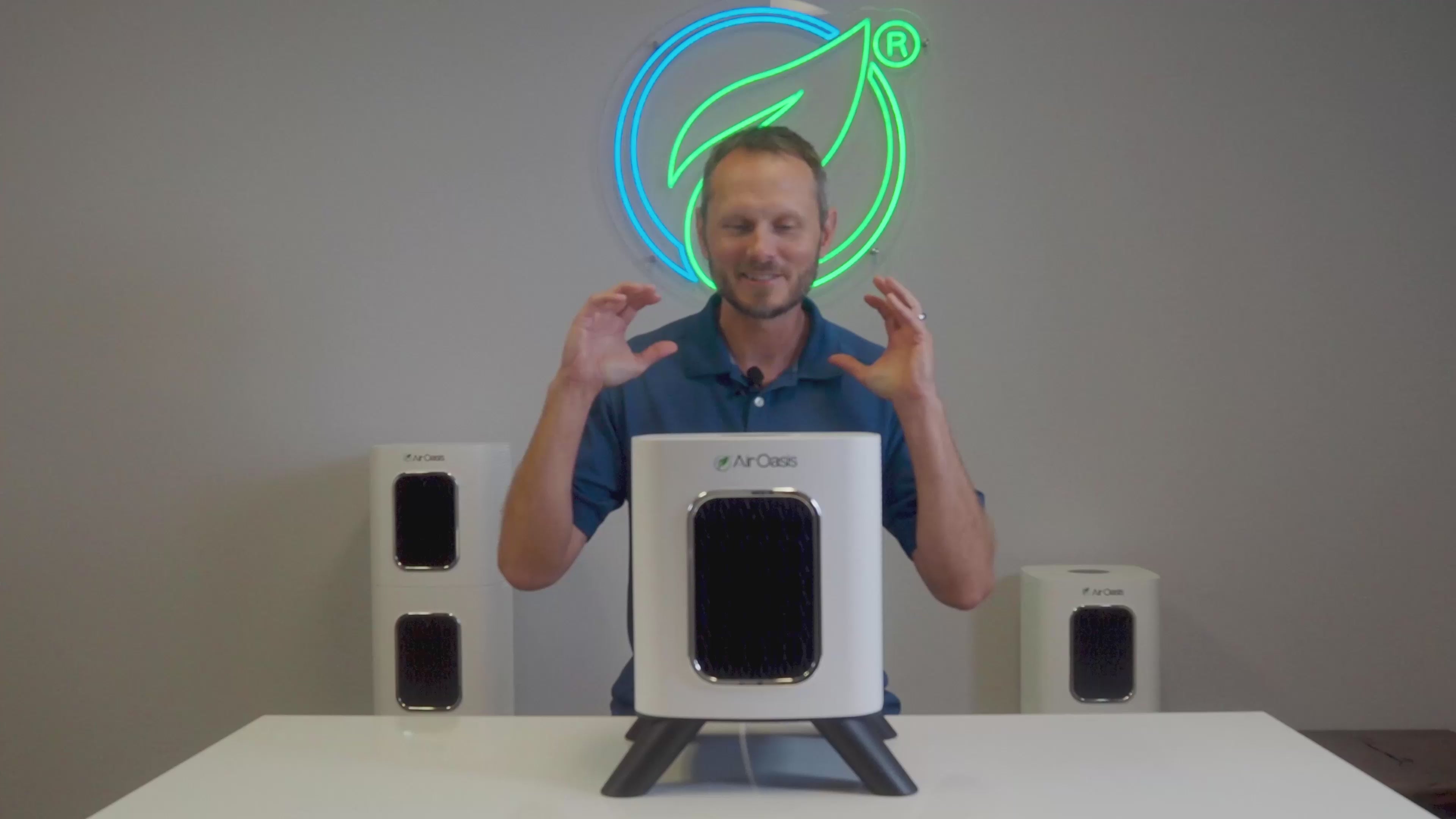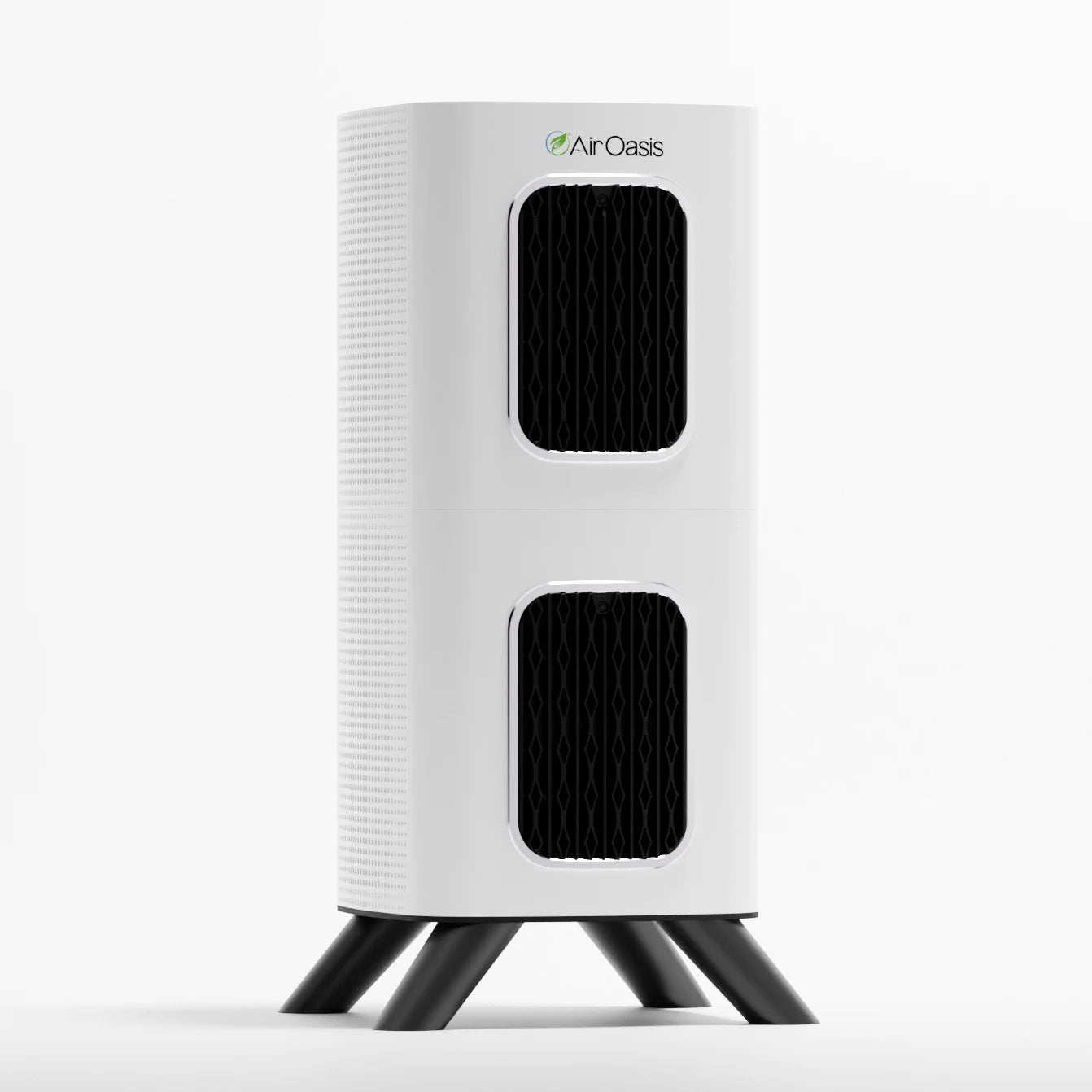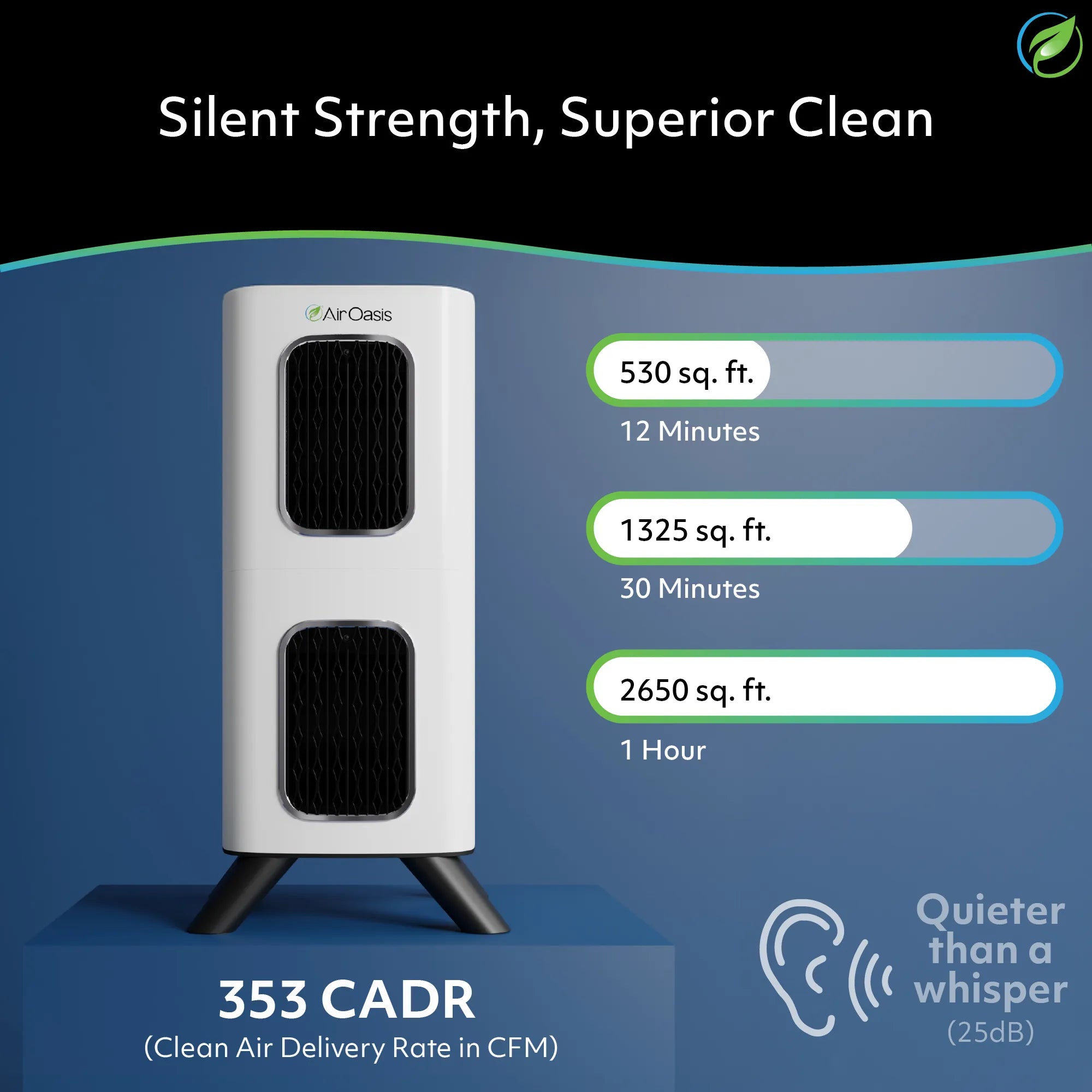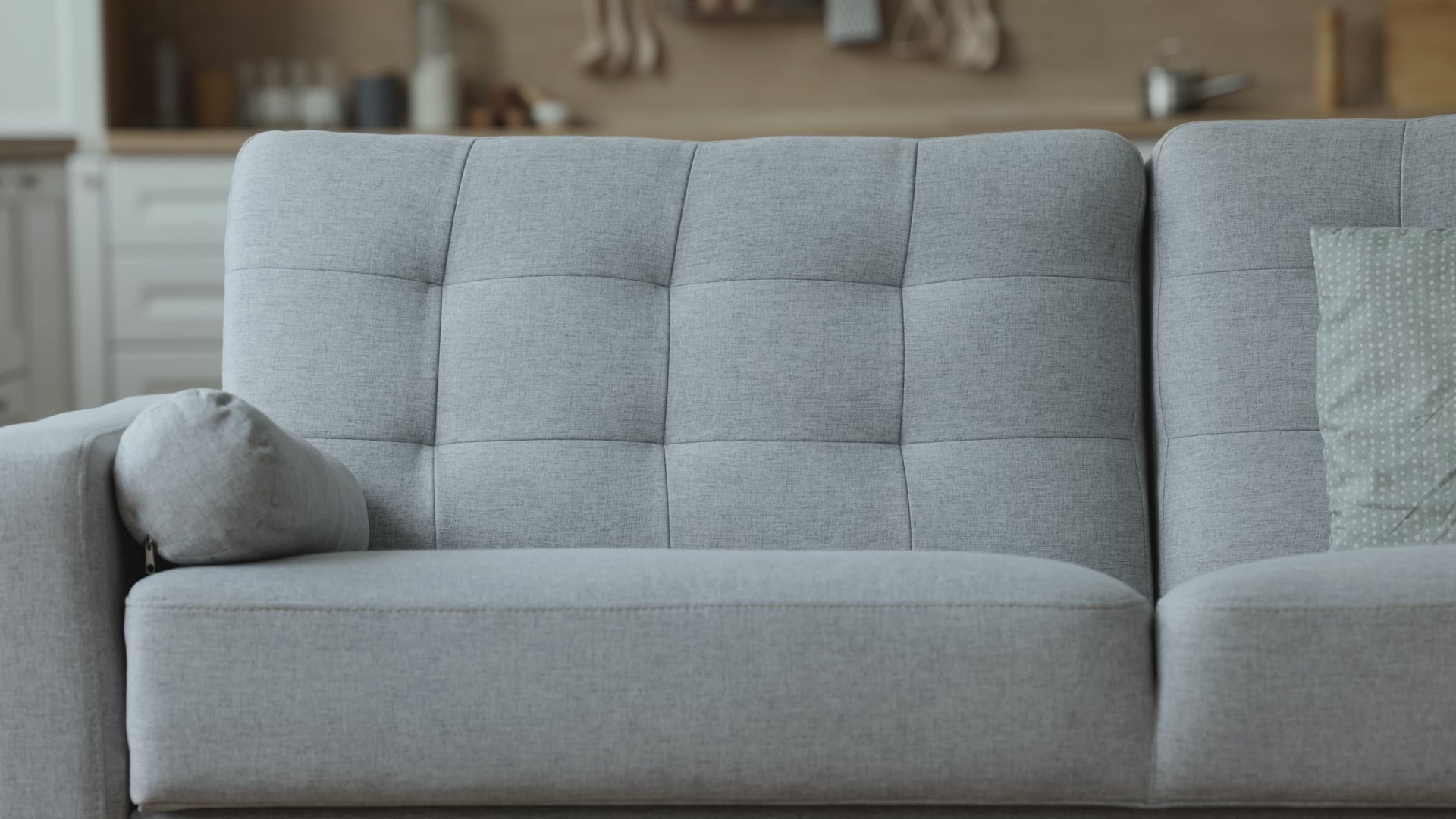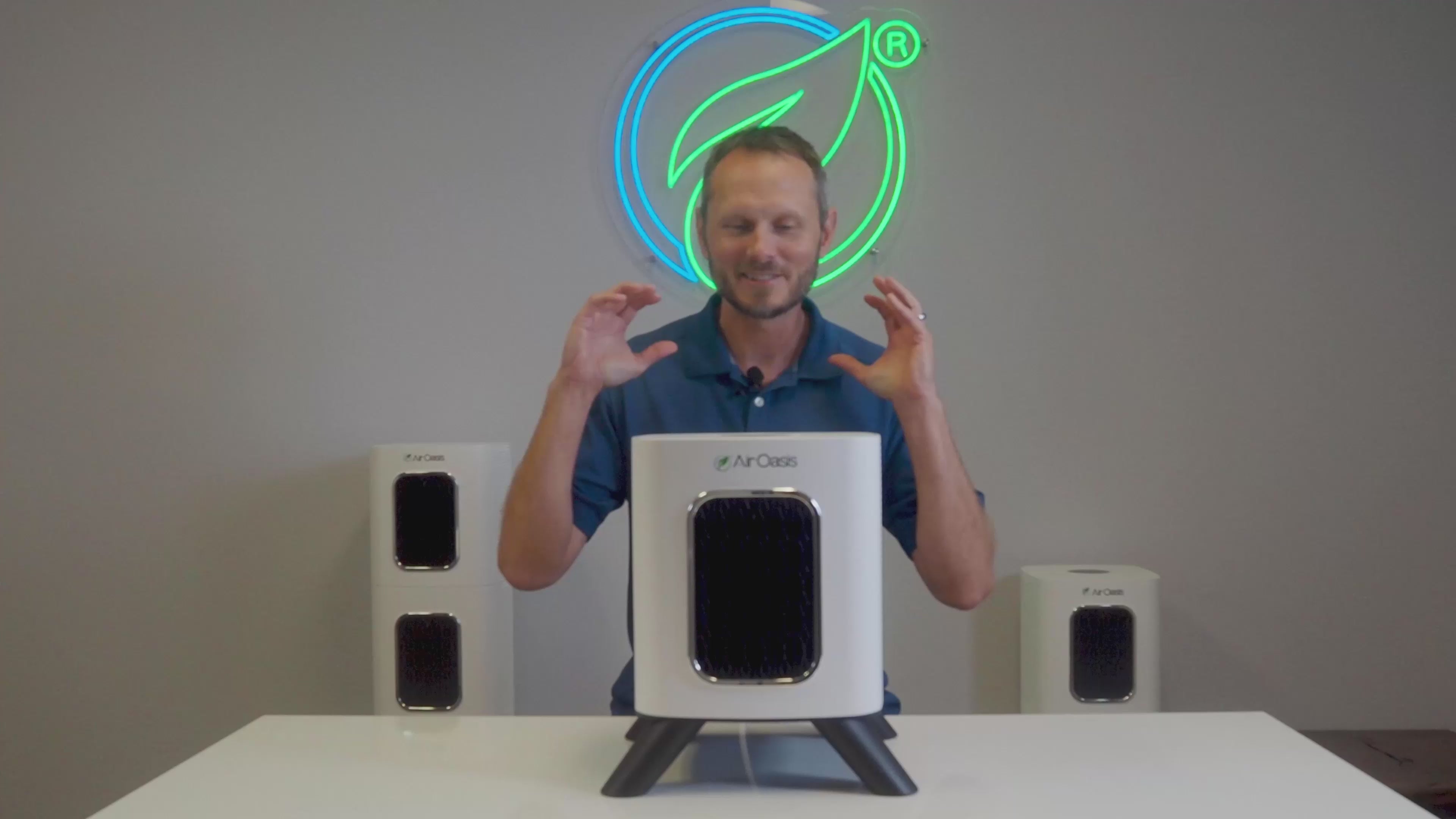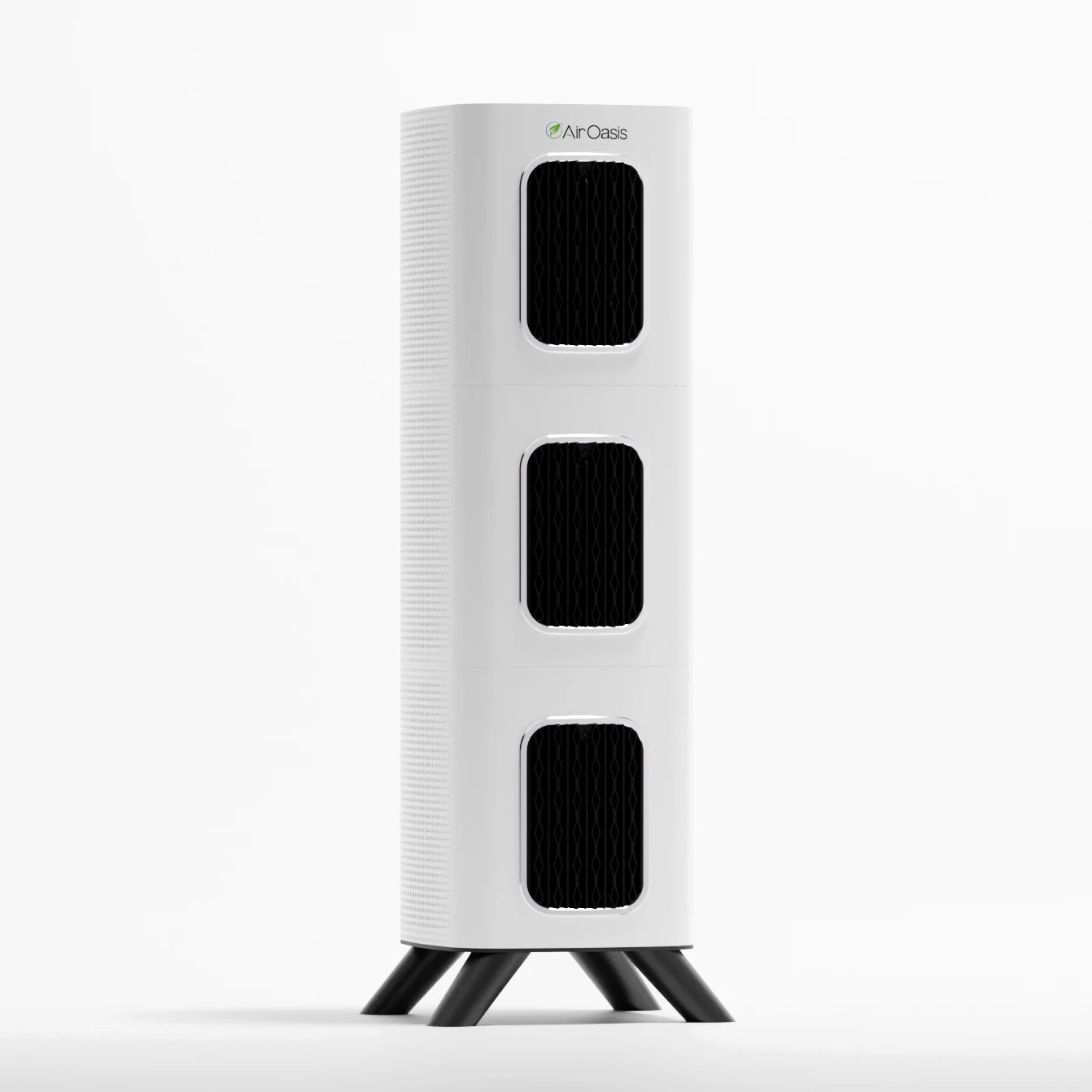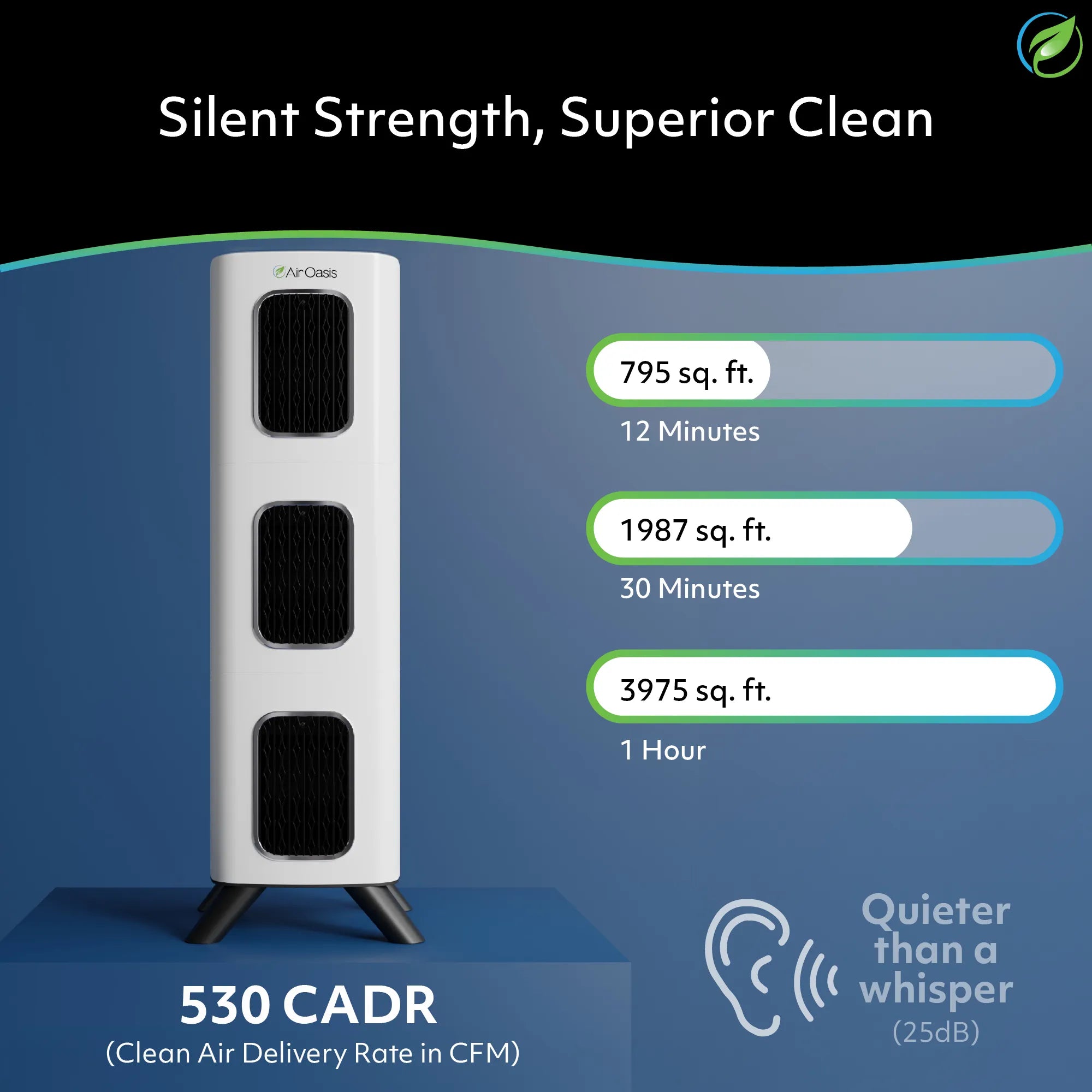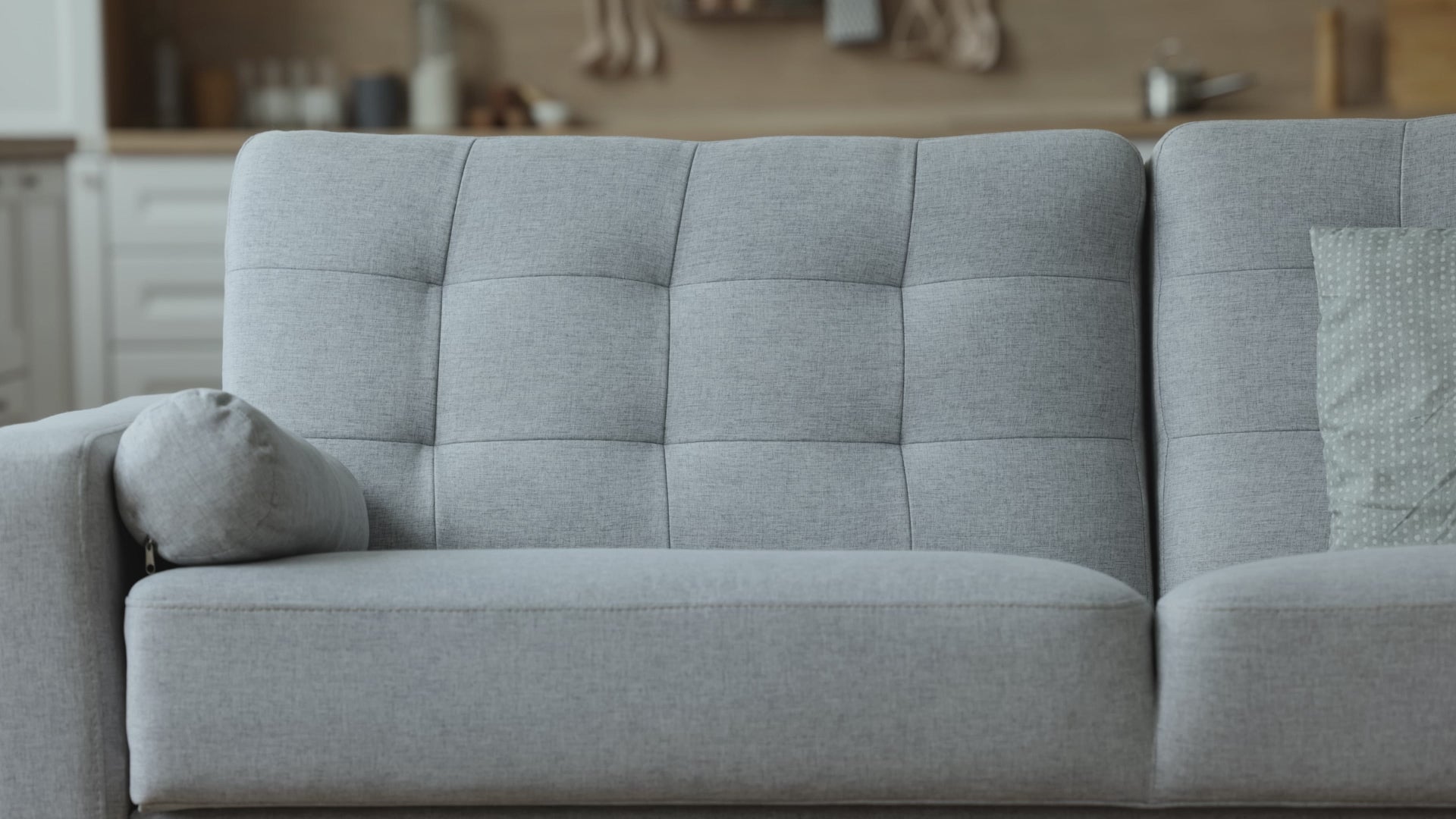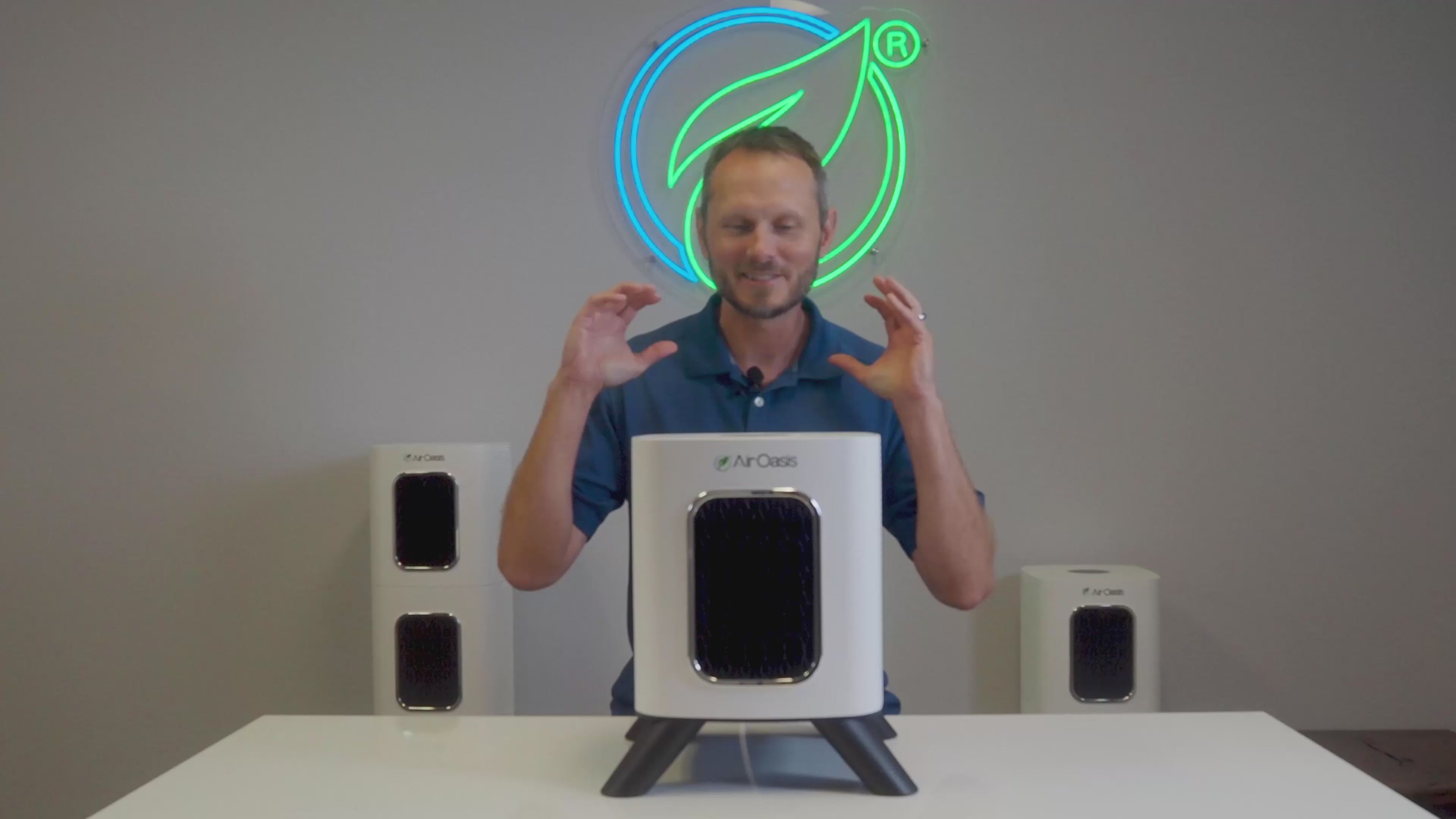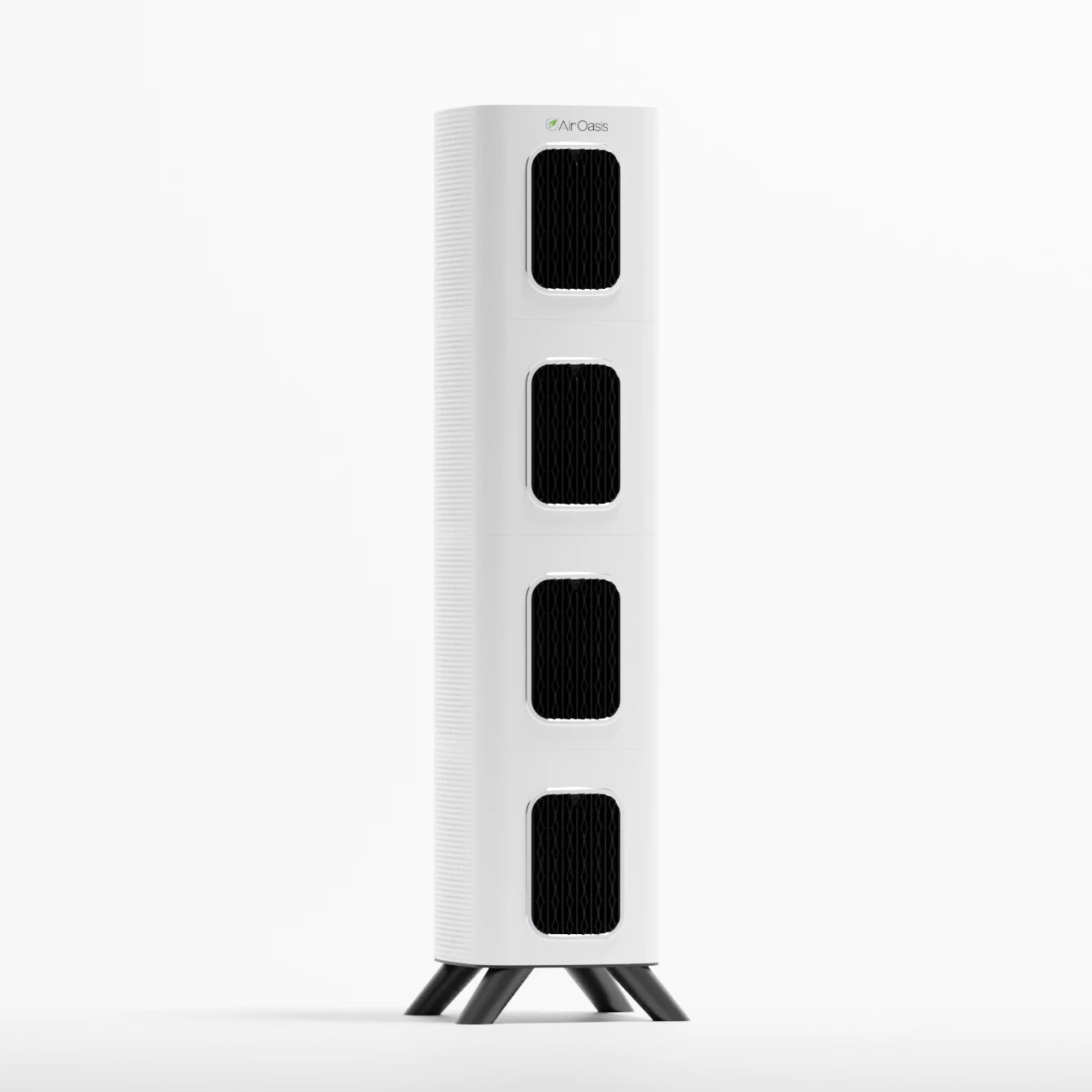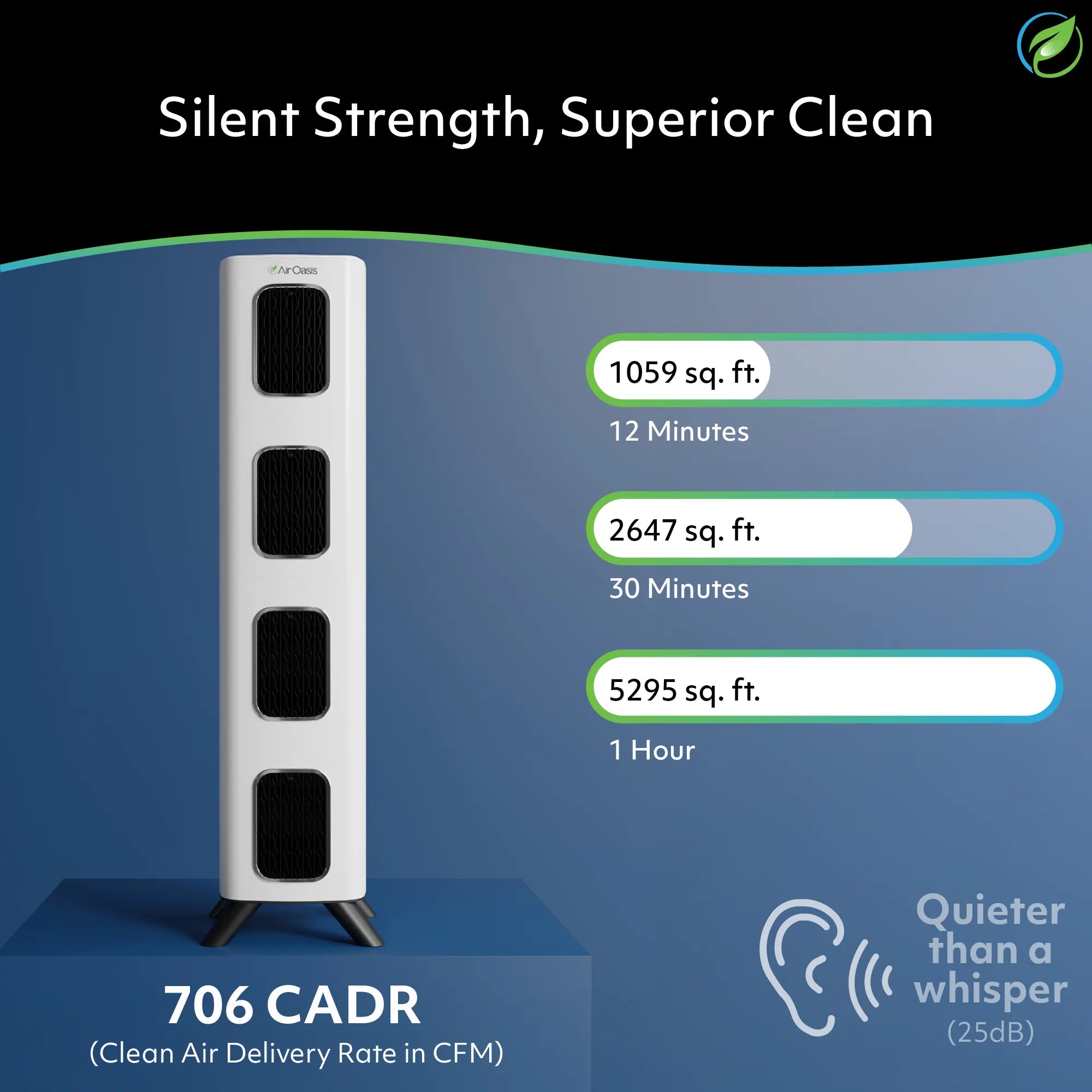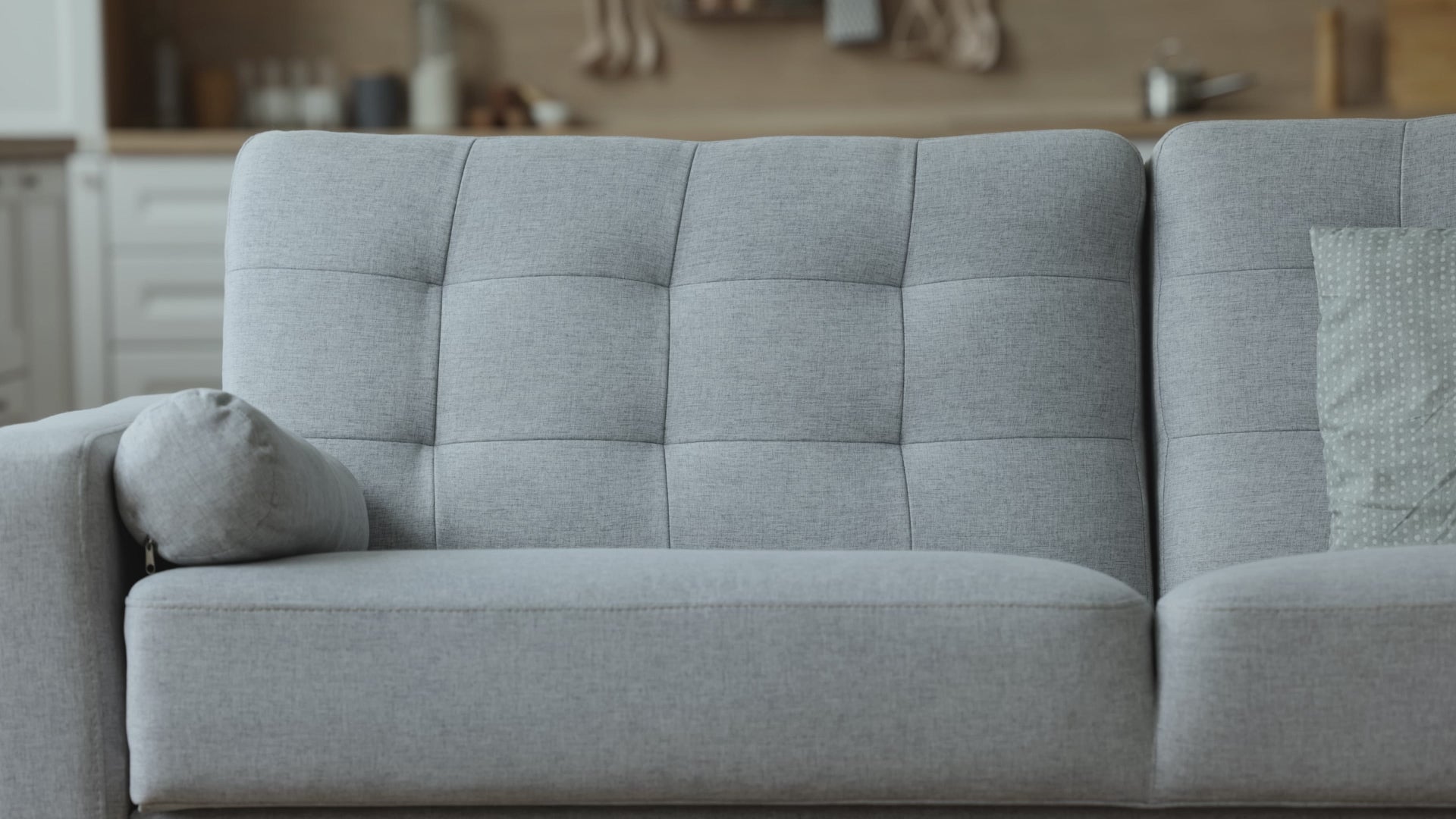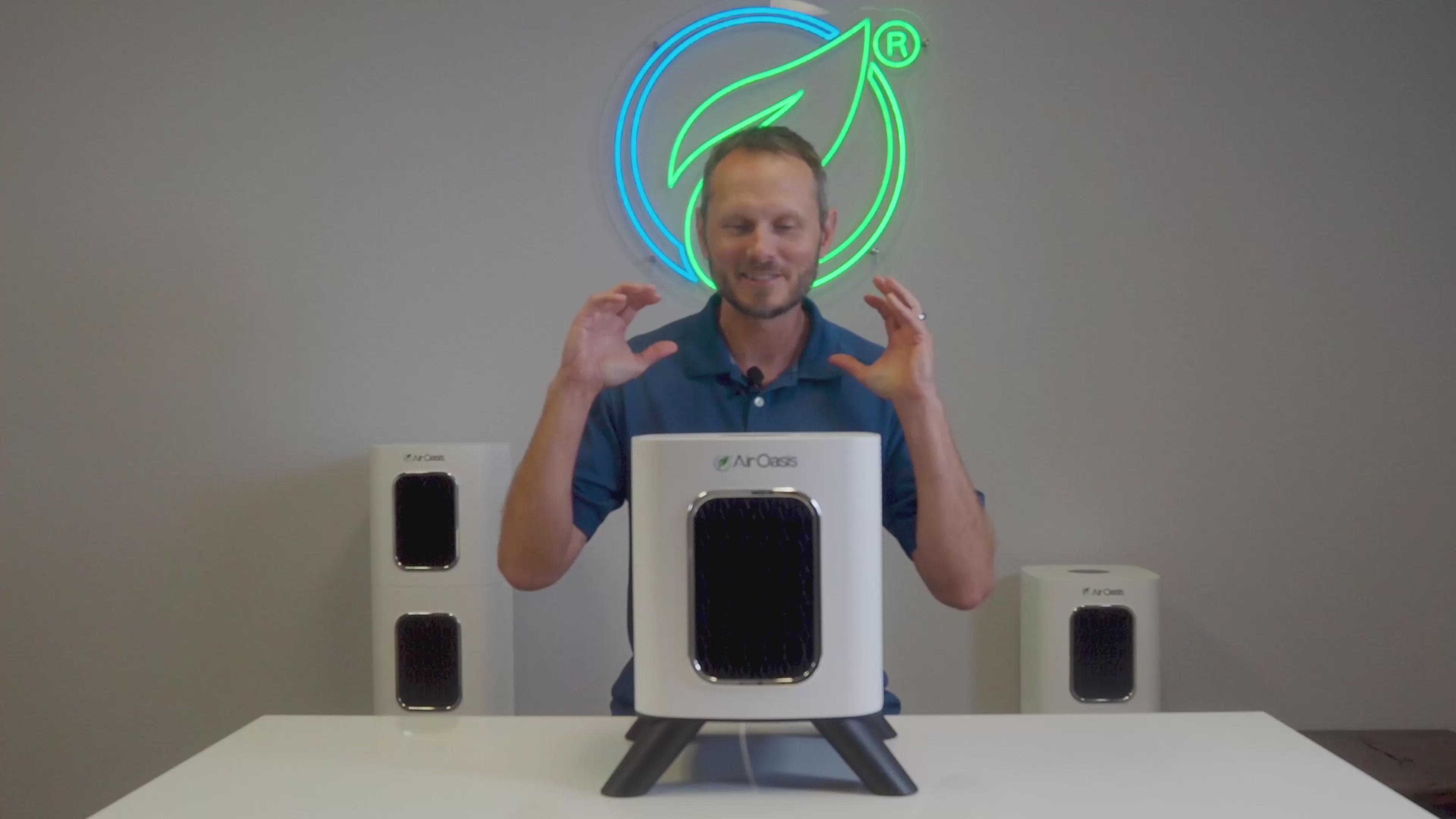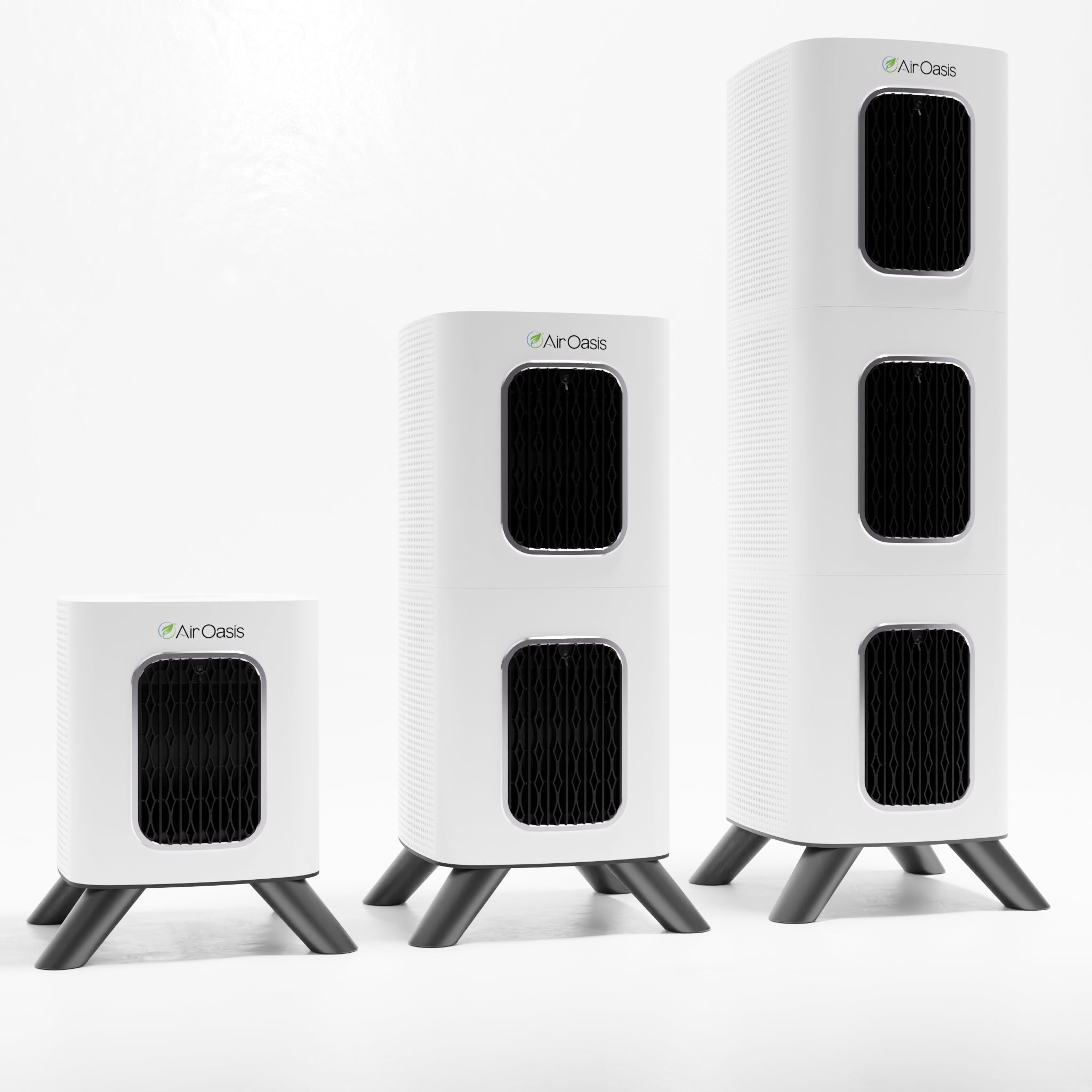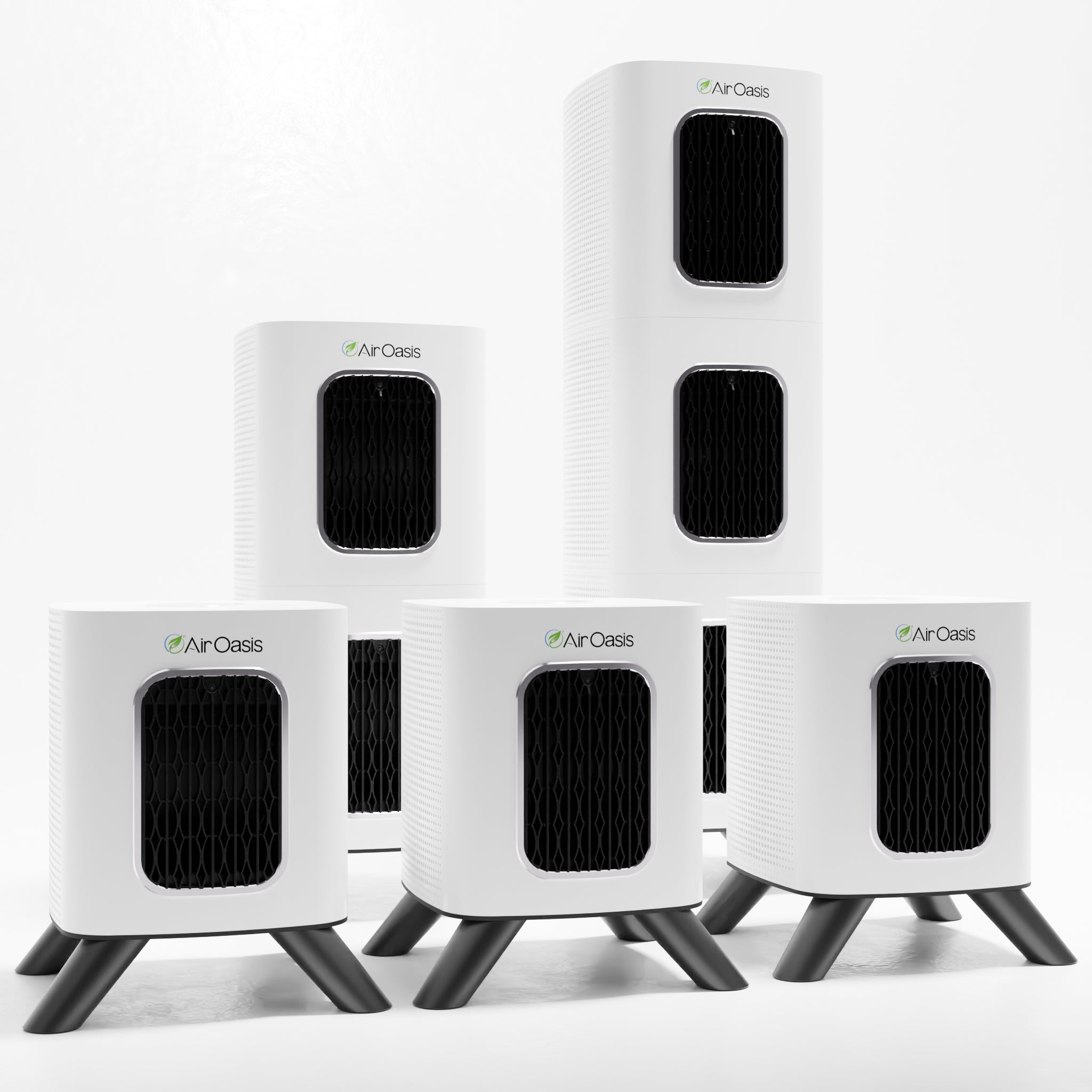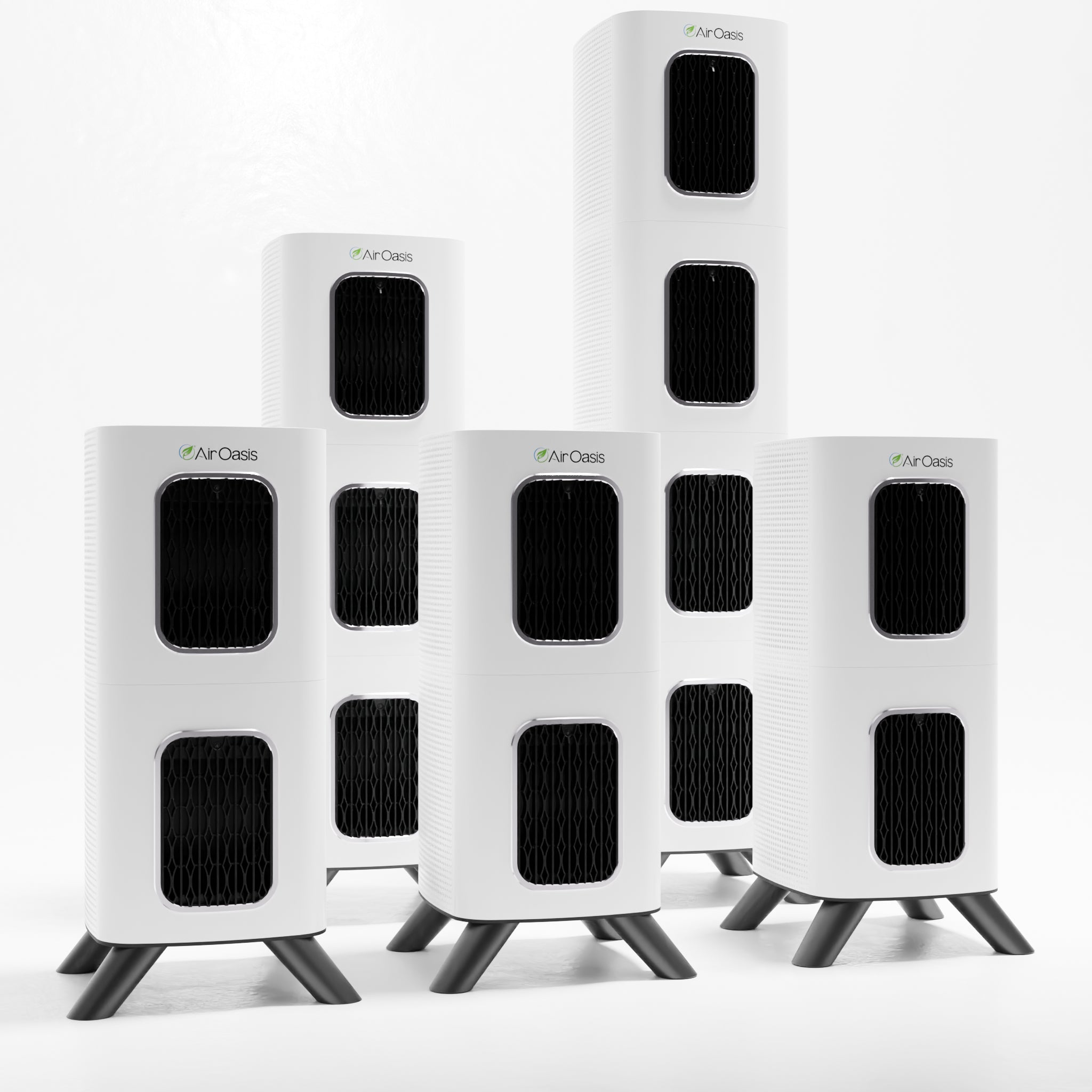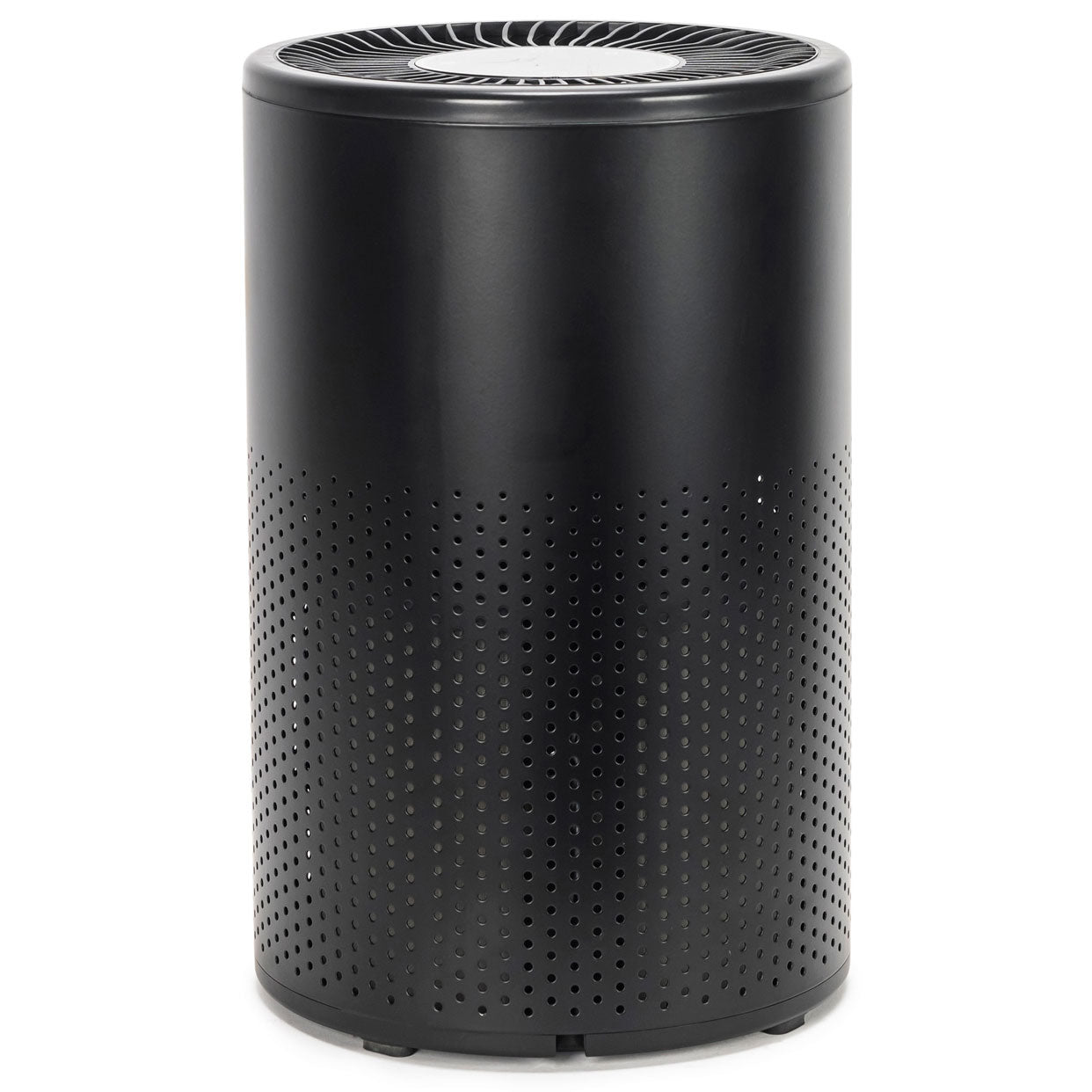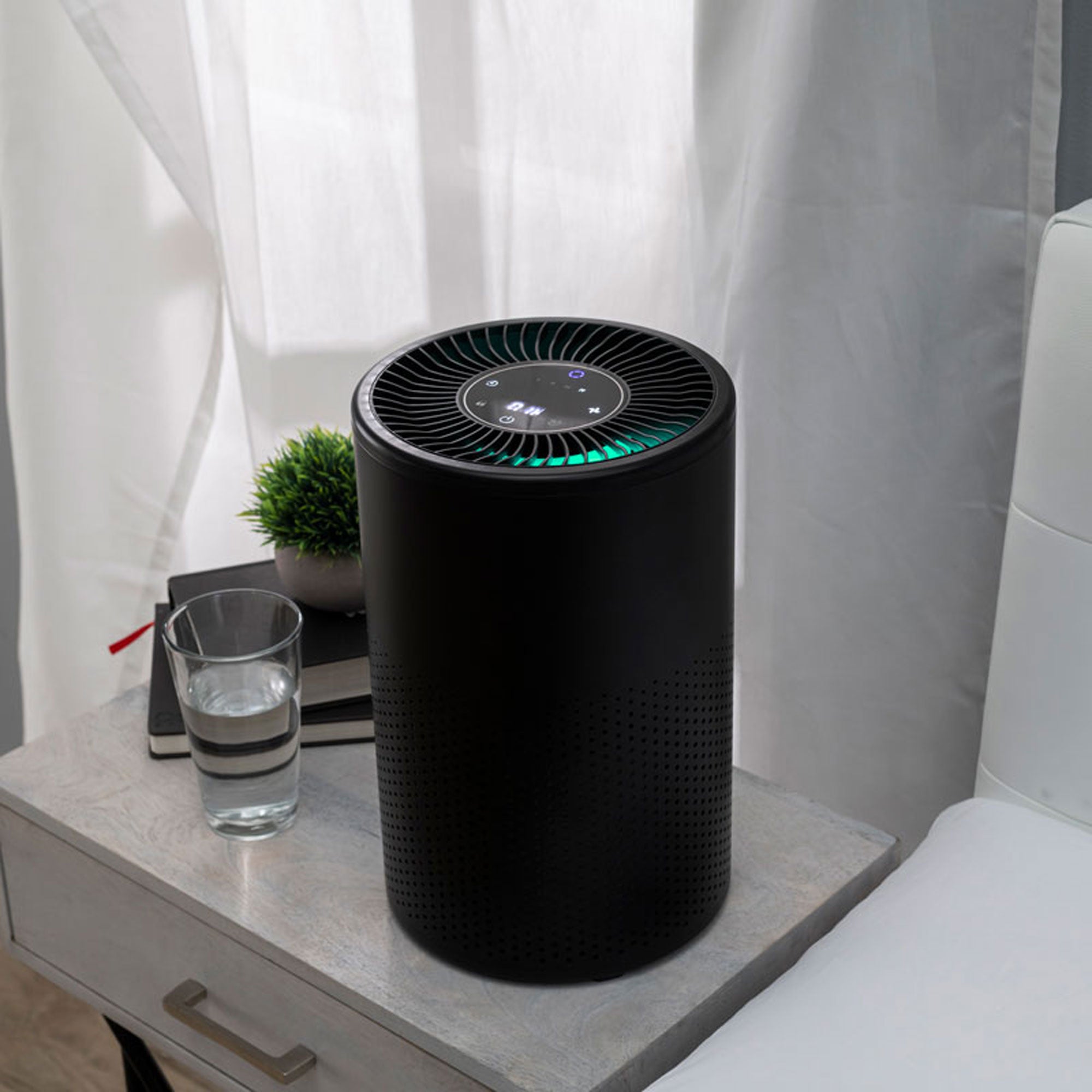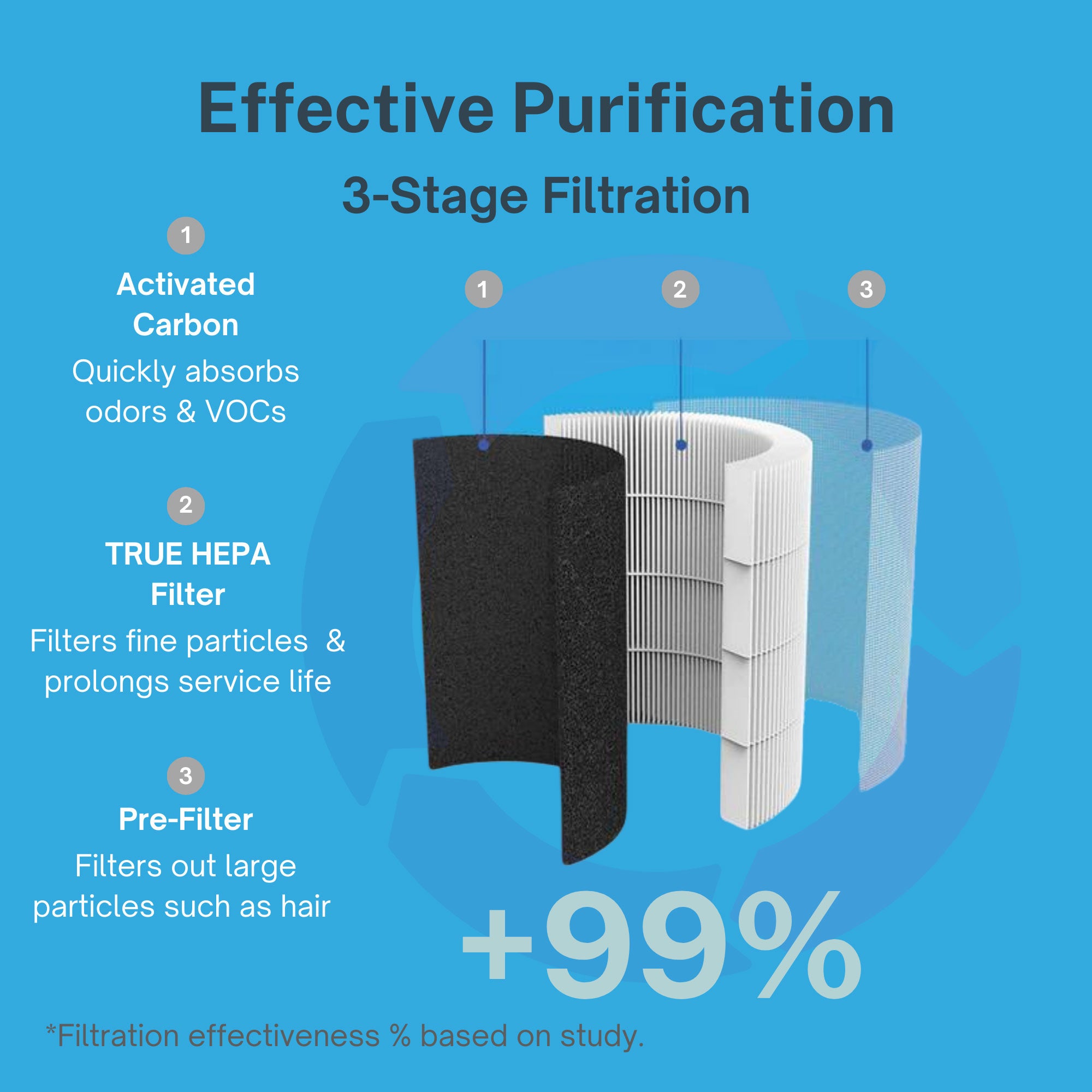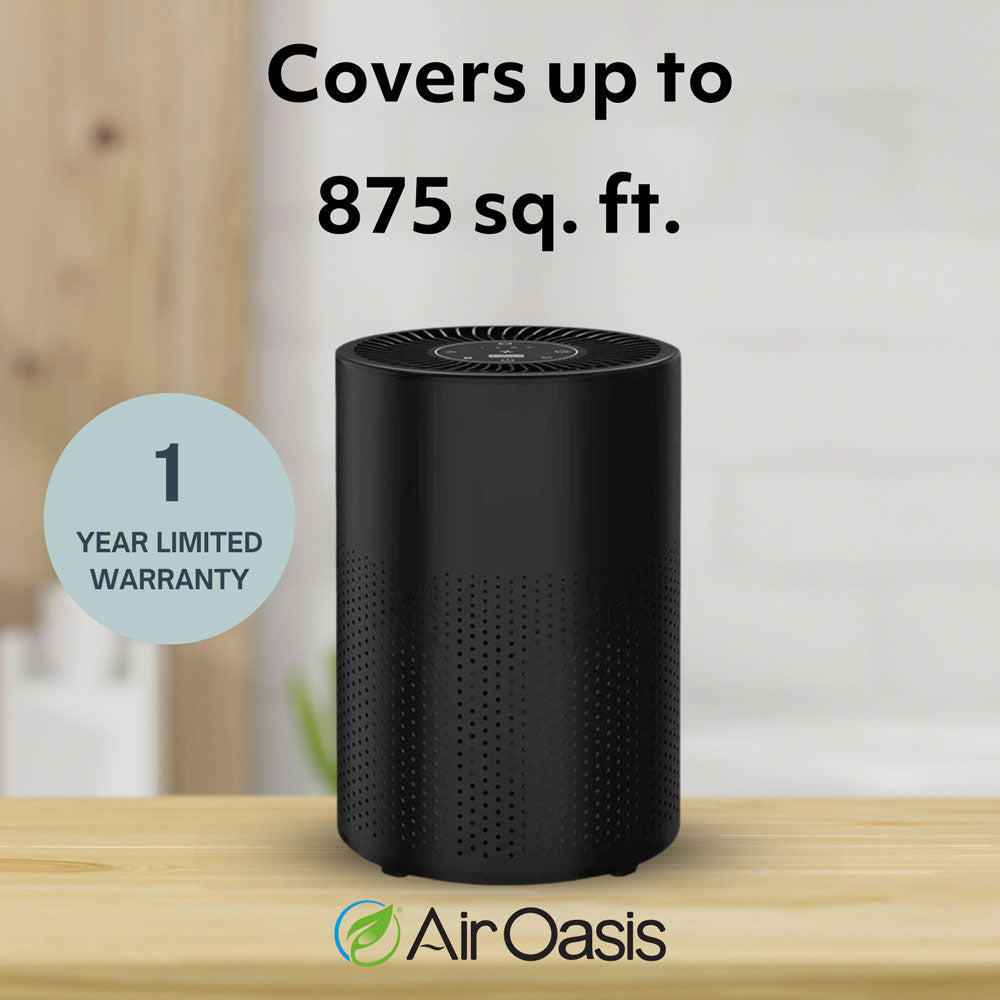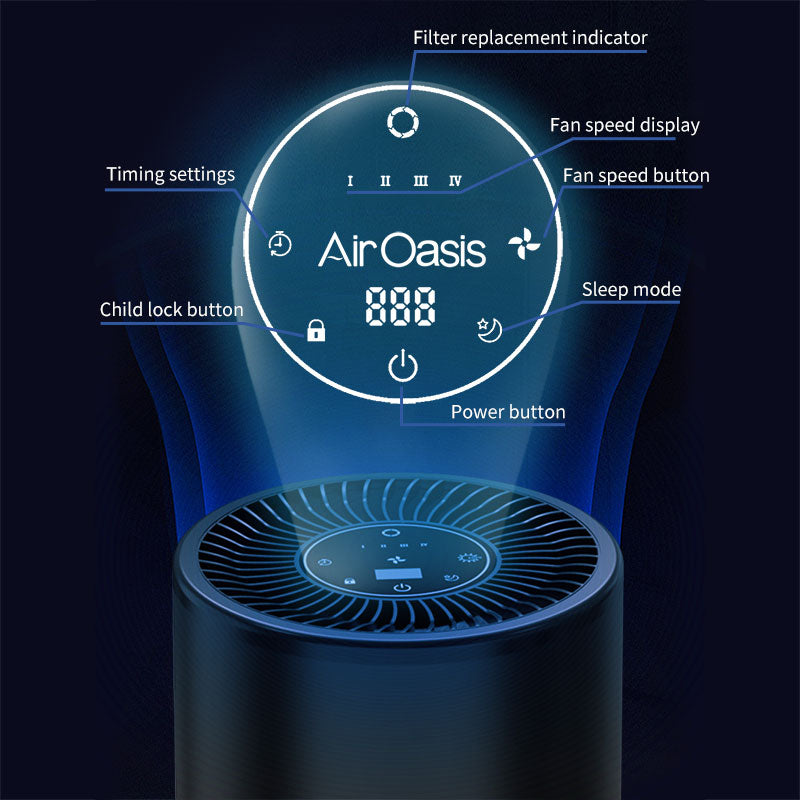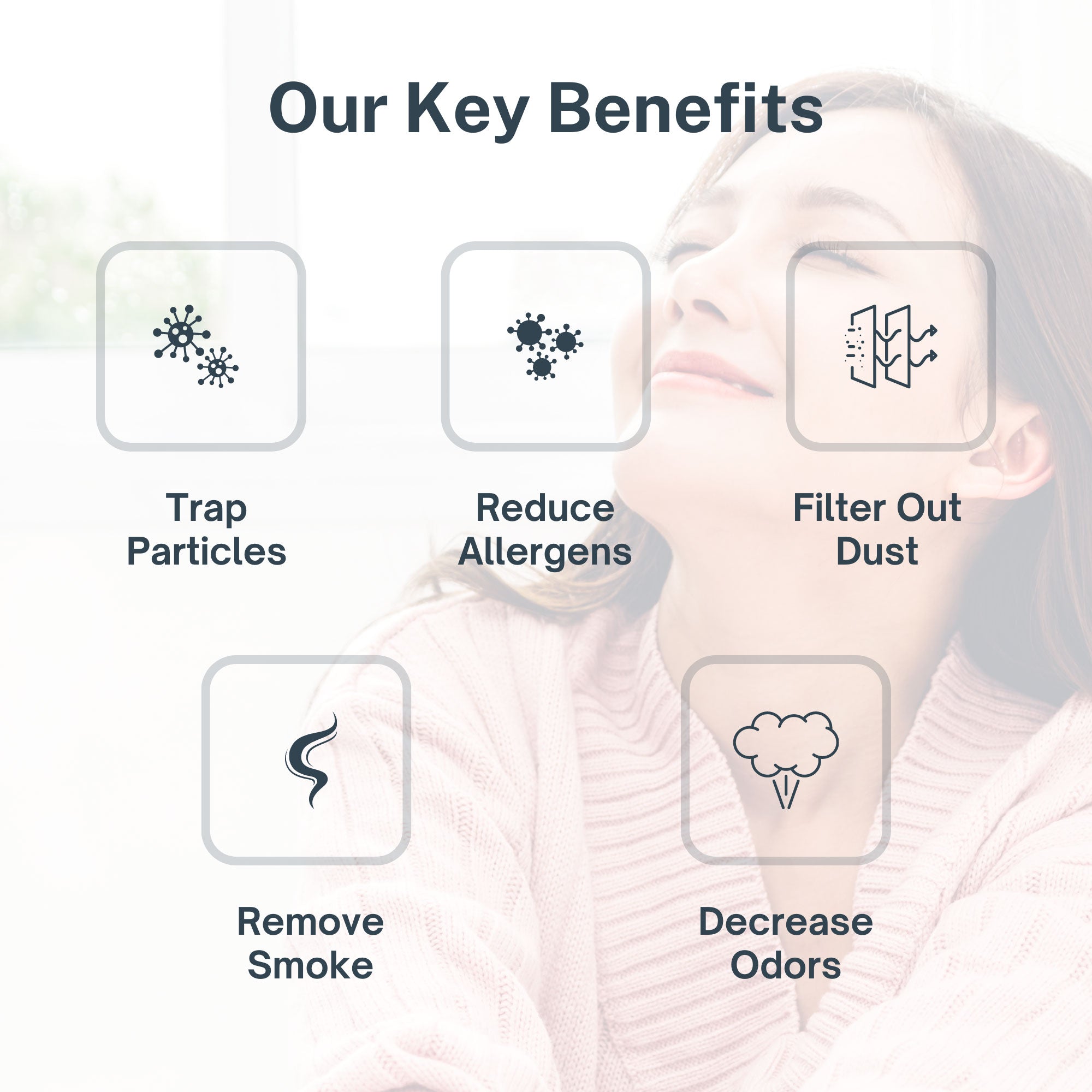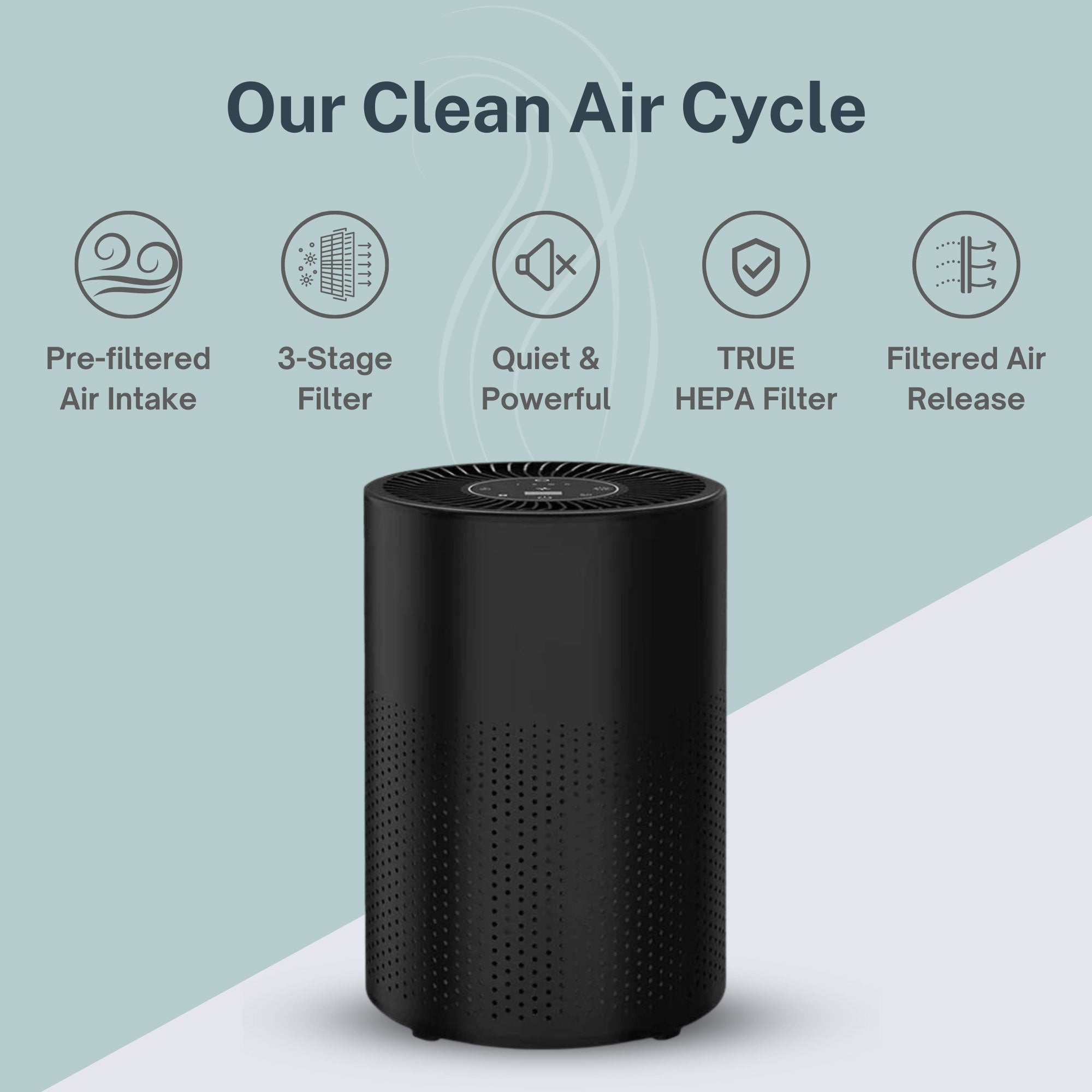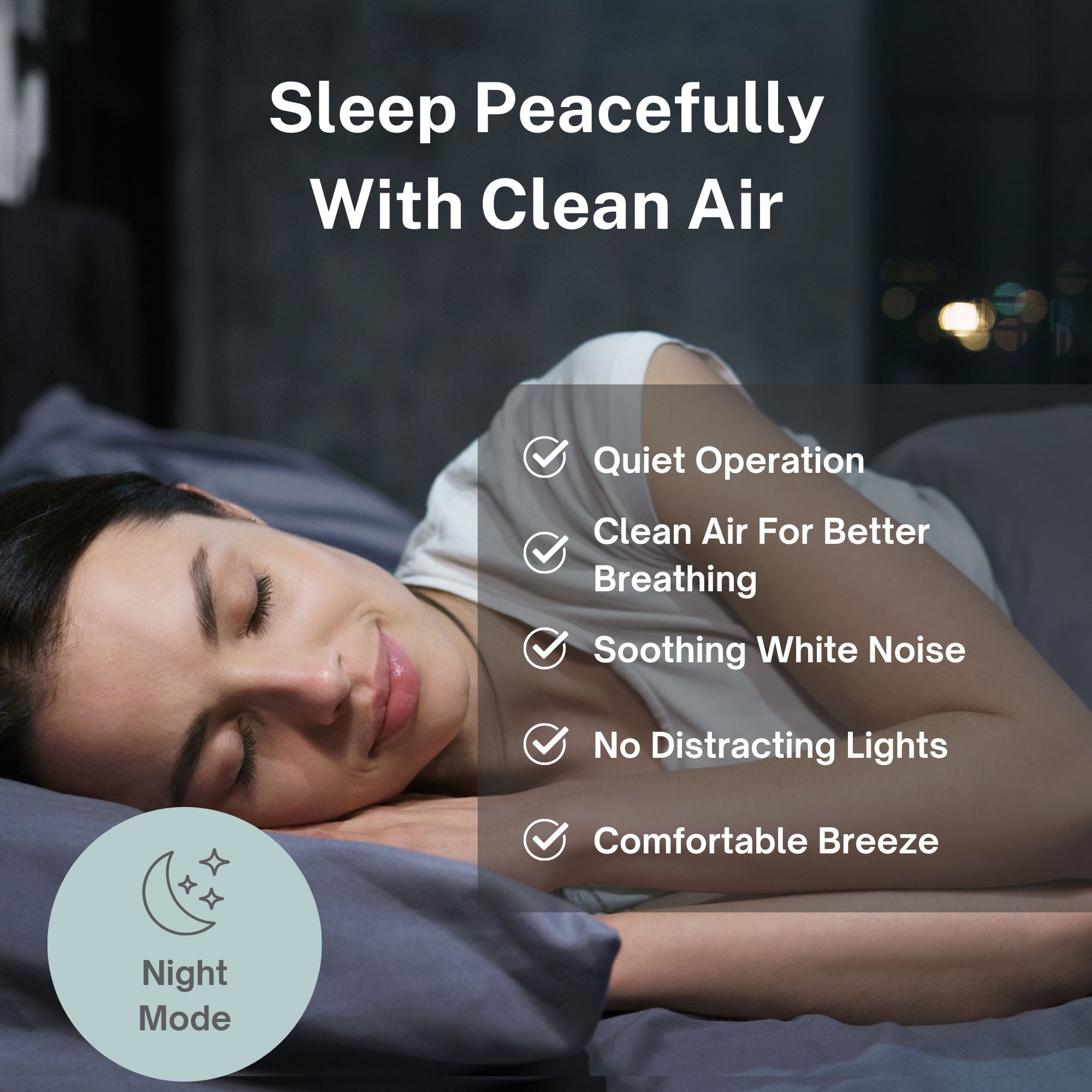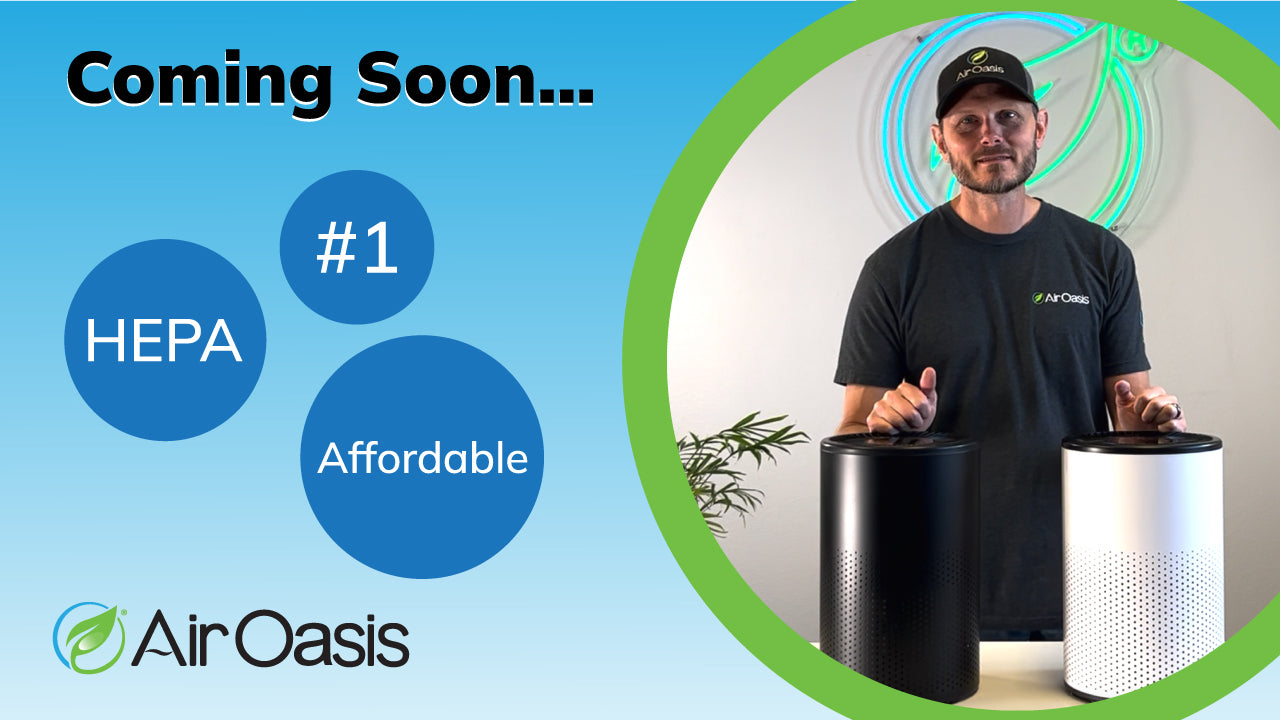Rest. Real, deep, REM. The kind that has you waking up refreshed and ready to face the day. Sound like a distant memory? If you aren't getting the right kind of sleep, it can negatively impact your mood and mindset. Poor sleep can lead to all kinds of health issues. Plus, it's deeply frustrating.
If you or someone you love can't stop tossing-and-turning, you need a solution. That solution may actually be as simple as improving the air quality in your bedroom. Whether you're up because of allergies or insomnia, sleep quality may improve with an air purifier. Sleeping with an air purifier has proven effective for people with numerous health conditions.
Read on to learn more about how pure air in your sleep breathing zone could make all of the difference.
Sleep Breathing Zone & Purified Air
Will an air purifier help me sleep? A clinical study conducted in May of 2019 found incredible improvements in participant's sleep by only changing the quality of air. Air purifiers remove particulates from the air. These cleaning devices reduce allergic symptoms and lead to better sleep. By providing clean air in the sleep breathing zone, all participants reported improved quality of life and quality of rest.
Sleep is important. People with disrupted sleep patterns have secondary issues such as:
- Exacerbating underlying conditions, such as hypertension, dyslipidemia
- Weight issues
- Worsened gastrointestinal disorders
- Mental health issues
Children who suffer from poor sleep patterns have higher incidences of behavioral issues and decreased cognitive function. While addressing foundational health issues is critical, improving your sleep environment is also key for healthy sleep.
Your Sleep Environment and Routines
Experts recommend refining your sleep routines and nighttime environment to be most conducive to quality rest. Recommended evening routines to promote better sleep quality include:
- Adhere to a sleep schedule
- Include rituals: lower lighting and don't do stressful activities
- Only sleep at night and exclude naps
- Daily exercise
- Don't eat right before sleeping
- Include relaxation habits, such as reading or meditation
Your sleep environment should also be optimal for good rest. Where you sleep should be:
- Comfortable and clutter-free
- Cool: if possible, between 60-70 degree Fahrenheit
- Dark: if needed, use darkening shades and even an eye shade
- Quiet: if needed, use ear plugs
- Clean: especially if you have sensitivity in your eyes, nose and throat—or suffer from chronic allergies—an air purifier can reduce particulates and contribute to a good night of sleep.
Do Air Purifiers Affect Sleep?
A recent pilot study in healthy adults found that using a high-efficiency particulate air filter was associated with specific sleep benefits including increased total sleep time and total time in bed. Future studies are needed to confirm this effect and determine if there are any mood outcomes as well with a wider range of individuals.
Does Poor Air Quality Cause Poor Sleep Quality?
Penn Medicine released a study that links multiple environmental variables to sleep quality, notably air pollution. High air particulate levels were associated with a 3.2% decrease in sleep efficiency. However, when participants were asked about what affected their sleep in a questionnaire, they didn't identify air pollution as a driver of poor sleep. This shows that poor air quality is linked to worse sleep, even if we cannot identify this ourselves.
Air Purifiers for Health Issues
Certain health conditions lead to poor sleep, which can create a cyclical dynamic in which your conditions worsen. Air purifiers have been shown to solve some common health issues by improving the air quality.
Allergies and Sleep
Do air purifiers really make a difference? A study on patients with allergies and asthma examined how air flow impacted sleep. By decreasing allergen exposure in the room where someone was sleeping, bronchial inflammation showed a sharp decrease. Participants reported a significant improvement in lung function and long stretches of uninterrupted sleep. Positive effects in quality of life were clearly illustrated by the simple addition of an air purifier for the bedroom.
Cardiovascular Issues, Sleep and Air Purification
Peer-reviewed studies have been conducted that associate cardiovascular diseases and sleep. These interactions can manifest as issues like hypertension, myocardial infarction and congestive heart issues decrease someone's ability to sleep well. The underlying conditions that lead to sleep deprivation may also be metabolic. When your sleep is restricted, it can exacerbate these health conditions.
Because particulates and pollution in the air exacerbate heart and lung conditions, an air purifier can promote well-being in people with cardiovascular issues by improving the air quality.
Do I Need an Air Purifier to Sleep?
You don't need to have any of the health conditions detailed above to benefit from an air purifier next to your bed. Many people buy an air purifier for the bedroom, which helps with nightly sleep in many ways.
How does an air purifier work to help you sleep?
Here are some proven ways your snooze could be improved by purified air:
- Air purifiers improve indoor air quality, which can reduce lung, eye and skin irritation, soothing your body for deep sleep.
- Air purifiers remove particulates from the air. This includes things like pet dander, dust, smoke and allergens or irritants.
- An air purifier can also reduce odors, creating an unobtrusive nighttime environment that's perfect for good sleep.
- The sound of air conditioners and air purifiers have been shown, in research, to improve sleep and some find that it helps them fall asleep faster.
How long does it take an air purifier to clean air in a bedroom?
This depends on both the size of the room and the Clean Air Delivery Rate (CADR) of the air purifier. If you have a small room, the iAdaptAir® HEPA UV Air Purifier S is a good choice because the CADR is 58, meaning that it covers 58 cubic feet per minute and is designed to cover areas up to 250 feet efficiently. On the contrary, if you have a bedroom up to 550 feet, you may opt for something like the iAdaptAir® HEPA UV Air Purifier M, which has a CADR of 151.
How often should you run your air purifier?
Some people choose to run their air purifier only at night, but it is actually recommended to run an air purifier 24 hours a day, according to Home Air Guides.
Air Oasis Air Purifiers for Sleep
Air purifier benefits extend to all aspects of your life, from offsetting the symptoms of allergies to improving sleep. But don't take our word for it! Our satisfied customers attest to how Air Oasis air purifiers change the quality of sleep for their families and children:
“I live in Southeastern North Carolina. I have bought two of your units for my house. I have had astounding results regarding me and my children's congestion/respiratory issues. After a month of placing one of your 1000 and 3000s in the house, everyone sleeps much better. The air in the house clearly has a much better quality.”
Ready to check out an air purifier? Go here to shop online for portable Air Oasis air purifiers.




